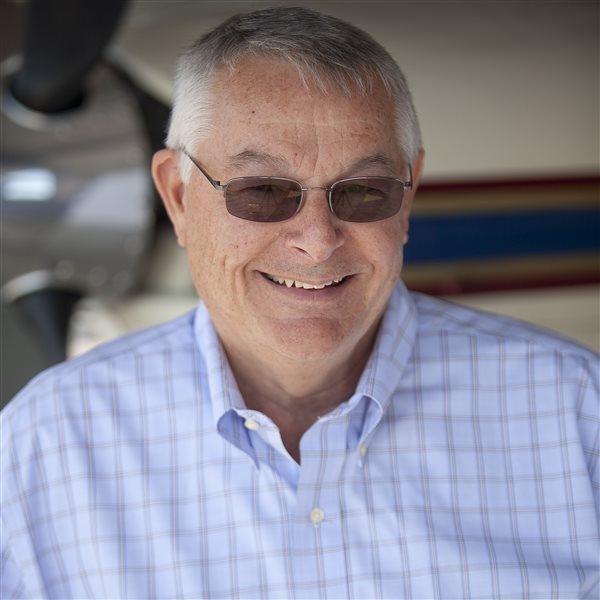There’s nothing unusual about two pilots enjoying spectacular scenery above a thin cloud layer on a moonlit night, except these pilots both are disabled by spinal injury. Heather Schultz, 26, is a quadriplegic although she can walk with a cane and electronic devices, while Sean O’Donnell, 32, has lost the use of his legs.
They flew in a Sky Arrow 600 two-seat light sport airplane fitted with hand controls on a 1,000-mile Freedom Flight to raise awareness that flight-training scholarships are now available for wounded veterans.
They stopped along the way to raise money in three towns for the scholarships to be administered through Able Flight, a North Carolina organization that provides flight-training scholarships for disabled people.
The two ranked the moonlit clouds as among their best memories since earning pilot certificates. O’Donnell, who lost the use of his legs in a motorcycle accident at age 17 as a high school senior, got his sport pilot certificate with a scholarship from Able Flight when he was 30 and continued to the private certificate. Schultz got her sport certificate more recently using O’Donnell’s Sky Arrow, and instructors at Purdue University. Purdue aviation officials wanted to learn how to provide flight instruction for disabled pilots.
O’Donnell started a flight school in Wilmington, Del., called Philly Sport Pilot that trains disabled and able-bodied pilots to fly. So far, his school has trained five disabled people to fly, and one without disabilities. The disabled pilots were funded by Able Flight scholarships.
Schultz was injured when she dived into a pool during a party four years ago. Just the impact of hitting the water broke her neck. Her friends at first didn’t realize she was in trouble and she nearly drowned. Then they left her on a bed in the house for hours before calling for help. She has damage to all four extremities, but can walk with the aid of an electric switch under one of her heels that sends electrical stimulation to her left knee.
She was two weeks away from preparing for a career in nuclear medicine when the accident occurred. Her injuries prevent her from pursuing that career.
“I had no prior interest in flying, but I play wheelchair rugby at a rehabilitation center. The wheelchair sports director told me about the Able Flight opportunity,” Schultz said. Asked what flying means to her, she said, “It’s a huge responsibility—a lot more than driving a car. It is a little intimidating, and still is.” Now, she is developing an interest in aviation management.
O'Donnell was director of distance learning at Villanova University when he decided he had the resources and time to fly. His injury resulted when a car turned in front of him while he was riding a motorcycle. He happened to notice the Able Flight website on the very day that the organization formed, and became its first scholarship winner.
Able Flight, headed by Charles Stites, formed in 2006 and has granted 32 scholarships that provide either full training for pilot certificates or flight experiences. Of the 21 full scholarships, 15 applicants have become pilots. Three dropped out, while others are still in training. Some of the applicants were returning to flying after an injury.



